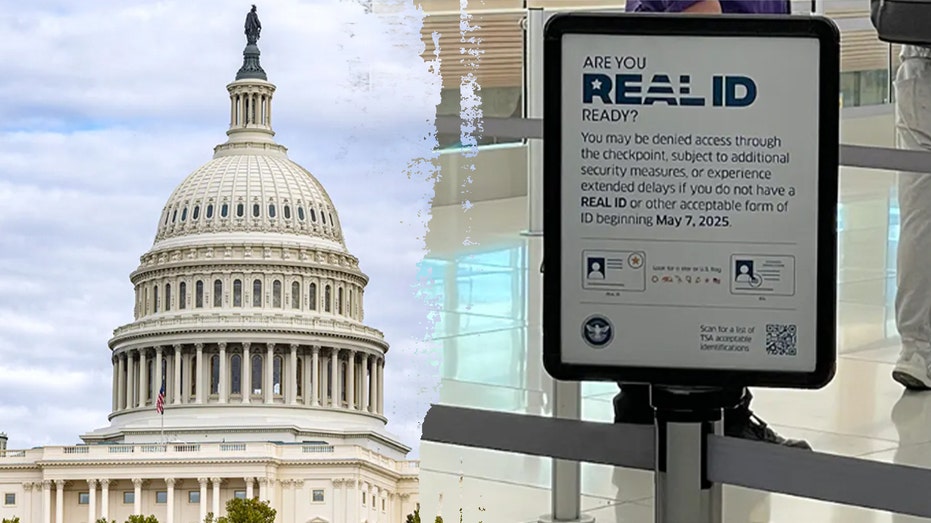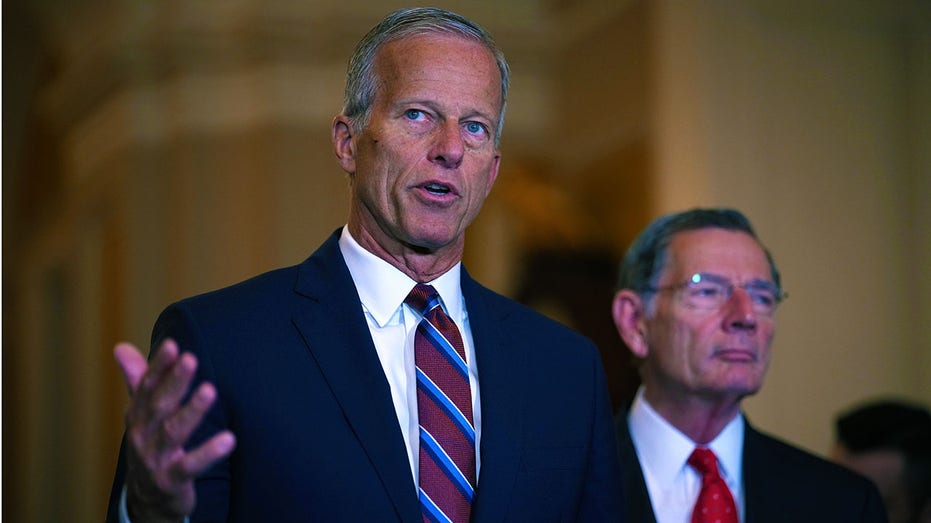The case for REAL ID: Why Congress passed this requirement in 2005

In the years following the Sept. 11, 2001 attacks, policymakers’ intense focus on national security led to sweeping changes in air travel; however, more than two decades later, one major requirement born out of that era has still not fully taken effect.
On May 7, Americans will finally be required to present a REAL ID-compliant identification card to board domestic flights.
The law mandating REAL ID passed in 2005, but its implementation has been delayed repeatedly over the years. The Trump administration argued that the deadline had already been postponed long enough, asserting that travelers had ample time to gather the necessary documents for the more rigorously verified form of identification.
Critics, however, contend that if the deadline could be pushed back by nearly 20 years without any flight-based terrorist attacks during that time, the urgency and necessity of the measure are questionable.
WHAT IS REAL ID? DEADLINE APPROACHES FOR NEW IDENTIFICATION CARDS REQUIRED TO FLY DOMESTICALLY
At its core, the REAL ID Act aimed to close security gaps that terrorists could exploit. Before 9/11, standards for issuing driver’s licenses and other IDs varied widely among states, with little coordination or verification of critical documents like birth certificates and Social Security numbers. Several of the 9/11 hijackers were able to obtain legitimate state IDs using fraudulent documents, enabling them to move freely and board planes without detection.
The 9/11 Commission Report, released in 2004, strongly recommended establishing national standards for identification as a counterterrorism measure. Congress acted quickly, embedding the REAL ID provisions within a broader defense and emergency spending bill – a strategic move that helped ensure its swift passage.
REAL ID requires states to verify the authenticity of key documents – birth certificates, Social Security numbers and proof of address. It also mandates that IDs use security features that are more resistant to tampering.
WHAT DID THE BUSH ADMINISTRATION, 9/11 COMMISSION SAY ABOUT REAL ID LEGISLATION?
The law was controversial from the start. Civil liberties groups raised concerns about privacy, data security and the emergence of what some called a “national ID card.” Many states resisted, citing costs, logistical challenges and fears of federal overreach. Compliance deadlines were extended multiple times as states upgraded their systems and negotiated the balance between security and individual rights.
The ID will be required not only for flights but also for access to some government facilities and nuclear sites. Some advocates, like the New York chapter of the American Civil Liberties Union, have expressed concerns that the ID could eventually be required to obtain government benefits and apply for a job.
“American people need to know that Real ID will be required to travel on May 7th, so those governors have been notified to communicate that at home. We don’t want anybody to get delayed and not be able to travel when they get to an airport,” Department of Homeland Security Secretary Kristi Noem said at a Cabinet meeting earlier this month.
CLICK HERE TO GET THE FOX NEWS APP
President Donald Trump reiterated the Real ID requirement in an executive order signed on March 25 focused on election integrity.
“This will also help us bring integrity back to all of our IDs and how they’re used, how they’re used for issuing driver’s licenses. And governors know how I feel about making sure their driver’s licensing system has integrity, because a lot of people use their driver’s license to vote, and the backbone of our country and the foundation is election integrity.”



